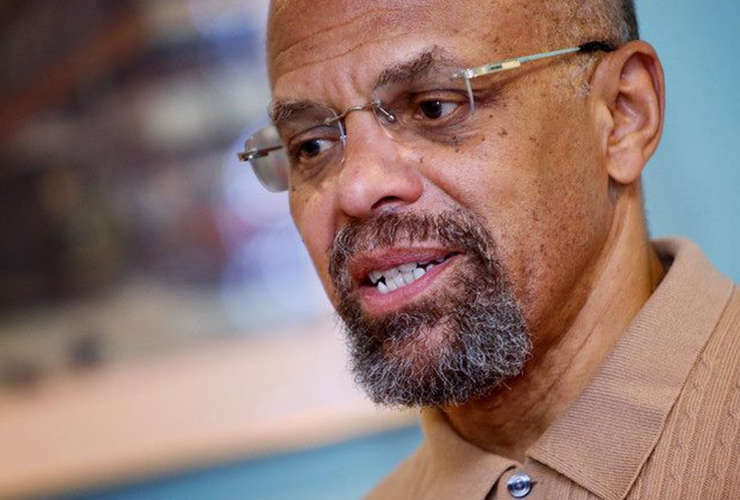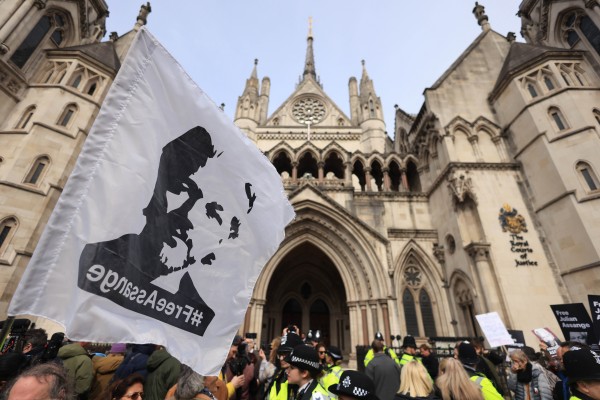Issues facing Black journalists are many and deep, but the problems generally aren’t broadcast live on television.
That was the situation for Omar Jimenez in Minneapolis on May 29.
He was on the air when he and his CNN crew were suddenly confronted by the police they were covering. The journalists were reporting on protests following the police homicide of George Floyd earlier that week.
Holding his microphone with his left hand and his media credentials with his right, Jimenez’s arm was gripped by a state trooper as the reporter said, “Put us back where you want us. We are getting out of your way.”
But the cops didn’t want cooperation. They wanted him in jail.
Jimenez was arrested, handcuffed and led away – with the world, including his mother and grandmother, watching. Then, seemingly as an after-thought as the video shows, his White and Hispanic crew colleagues, also were busted.
Not far away, Josh Campbell, a White CNN reporter, was allowed to remain on the scene. “I was treated much differently than (Jimenez) was,” Campbell told CNN.
White people are treated differently than Black people and that goes for journalists too.
This era of racial reckoning has not wrecked racism, but it is the most sustained and vigorous challenge to America’s racist foundations in generations.
Atop that list is the criminal justice system’s disparate treatment of Black people and White people for similar actions, as the CNN cases demonstrate. Also on the list is journalism — a White dominated industry in a rapidly changing nation.
“Journalism is not a crime,” National Association of Black Journalists (NABJ) President Dorothy Tucker remined police agencies, as she cited “countless reports of journalists,” including NABJ members, “arrested, threatened, shot at and tear gassed while on the job.”
Many journalists have faced the dangers Tucker mentioned, but the fact that Jimenez was arrested, while Campbell was not, also demonstrates the particularly treacherous conditions facing Black reporters on the street.
And a half-century after the seminal 1968 Kerner Commission report, on the urban rebellions of that era, urged greater recruitment and promotion of “Negroes into journalism,” life for Black journalists inside today’s newsrooms can be tricky too. African-American New York Times staffers were outraged when the paper ran an op-ed column by Sen. Tom Cotton (R-Ark.) that said the military could be used to put down the protests sweeping the nation. As a result, one editor quit and another was reassigned.
While there are far too many situations to list here, in just the two weeks from May 29 through June 13, NABJ issued five statements concerning comments and actions with racial implications, including Tucker’s “not a crime” declaration and one condemning the arrests of Jimenez and his crew.
NABJ’s other statements covered:
* The Pittsburgh Post-Gazette’s punishment of Black staffers whose editors blocked them from covering police violence protests. Alexis Johnson sued the paper for retaliation and racial discrimination after she was barred from protest coverage following her incisive, but ultimately innocuous tweet, of a trashed parking lot after a country singer’s concert. Her tweet: “Horrifying scenes and aftermath from selfish LOOTERS who don’t care about this city!!!!!” …. oh wait sorry. No, these are pictures from a Kenny Chesney concert tailgate.” Michael Santiago, a Pulitzer Prize-winning photojournalist, said he quit because he was taken off protest coverage after tweeting in support of Johnson. The paper’s top editor issued a defensive and aggressive statement that said “we certainly did not single out two people and keep them from covering local protests because they were black. That is an outrageous lie.”
* Allegations in a HuffPost article that a now-suspended ABC News executive used offensive language when referring to two Black journalists, including “Good Morning America” anchor Robin Roberts. HuffPost reported that when Roberts sought more pay during contract negotiations, Barbara Fedida, a senior vice president, said the journalist was not being asked to “pick cotton.” Fedida, according to the story, also said that ABC “spends more on toilet paper than we ever would” on Kendis Gibson, another Black journalist. Fedida issued a statement calling the claims “incredibly misleading” and saying she is “proud of my decades of work of hiring, supporting and promoting talented journalists of color.”
*A Philadelphia Inquirer “Buildings Matter, Too” op-ed headline that NABJ called said “an offensive attempt to play off the ‘Black Lives Matter’ movement.” The uproar, including from Black journalists at the newspaper, led to the resignation of Stan Wischnowski, who was senior vice president and executive editor and a 20-year veteran of the paper. Before he left, Wischnowski, along with two other top editors, issued an apology for the headline. The apology acknowledged that it “on its own is not sufficient.”
Noting the anger of the company’s African-American staffers, the apology said “an enormous amount of pressure sits on the shoulders of black and brown Inquirer journalists, and mistakes like this, made by the publication they work for, are profoundly demoralizing. We hear you and will continue to listen as we work to improve.”
Promises to listen and improve have long been the response of editors to demands raised by Black journalists. Over the years, for example, Black Washington Post staffers advocated for more black power with limited results. It is this current national reckoning, ignited by the Black Lives Matter movement, however, that pushed The Post on June 18 to announce a new managing editor for diversity and inclusion, and several reporting slots focused on race. The announcement did not mention the previous African-American efforts or that just days before the Washington Post Guild submitted a newsroom petition, signed by 500 workers, with specific recommendations for “a diverse, equitable and inclusive environment.” The Post also is considering capping “black” when referring to people, as NABJ has advocated and as the Associated Press, the New York Times and other news organizations already have done.
The creation of a new managing editor position and new beats are potentially concrete first steps. This and moves at other news organizations could help fight what Richard Prince calls “discrimination against perspectives and ideas.” Journalists, said Prince, who covers diversity in his indispensable Journal-isms column, respond to theinstructions and perspectives “passed down from the top.” That’s why real diversity and inclusion are crucial.
Yet, what difference this current spate of newsroom awakening will make remains to be seen.
“Given this new found appreciation for Black lives in America, it will be interesting to see if there is a shift in the attitudes that have precluded African- American journalists, from fully exploring Black life…” said New York University journalism professor Pamela Newkirk. “I think all these institutions need to do their own soul-searching on how they are complicit in the perpetuation of racial bias,” added Newkirk, author of “Within the Veil: Black Journalists, White Media” and more recently “Diversity, Inc.: The Failed Promise of a Billion-Dollar Business,” about the ineffectual workplace diversity industry.
Speaking of failed promises, in 1978, 10 years after Kerner, the American Society of News Editors (merged with the Associated Press News Editors in 2018 to form the News Leaders Association) set the “Year 2000” goal to make newsrooms racially representative of the population. In 1998, the goal was pushed to 2025, which looks like another failure in the making. In 2019, newsrooms remained far behind the goal, with Black people, who are about 13 percent of the national population, comprising about 7 percent of staff and leadership positions.
Maybe now things are changing.
As succinctly put by News Leaders Association President Michael Days, who also is the Philadelphia Inquirer’s vice president for diversity and inclusion: “When people raise hell, people do listen.”
Joe Davidson is one of the founders of the National Association of Black Journalists in the United States and a Washington Post columnist. This article is a guest blog. Any views expressed here do not necessarily represent those of IPI.



